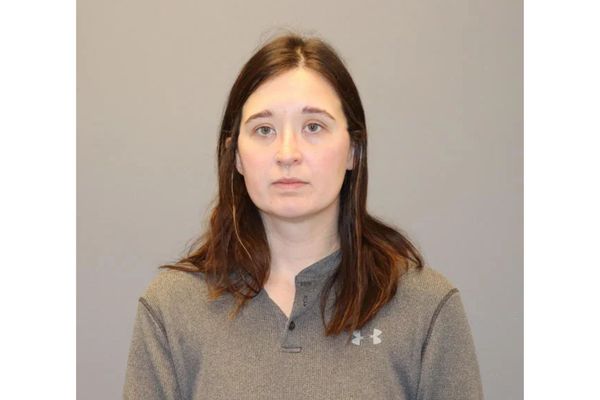The College Football Playoff (CFP) Selection Committee is a 13-member panel tasked with selecting and ranking the nation’s top 25 college football teams, ultimately deciding the four participants in the playoff. Members bring diverse expertise—coaching, athletic administration, journalism, and playing experience—to ensure a well-rounded evaluation. Here’s a closer look at the 2024-25 committee:
Chris Ault

- Role: Former head coach and athletic director at the University of Nevada.
- Contribution: Known as the innovator of the Pistol offense, a scheme that has shaped modern football. With over 200 career wins and a Hall of Fame induction in 2002, Ault’s strategic insights are invaluable to evaluating offensive systems and coaching performance.
Mitch Barnhart

- Role: Athletic director at the University of Kentucky.
- Contribution: During his tenure, Barnhart has elevated Kentucky’s football program in the hyper-competitive SEC. His experience managing a high-stakes athletic department lends credibility to discussions of team scheduling and resource utilization.
Boo Corrigan

- Role: Athletic director at North Carolina State University.
- Contribution: Corrigan has overseen NC State’s rise in multiple sports, emphasizing football. His knowledge of ACC football trends and challenges ensures fair representation of the conference’s teams.
Chet Gladchuk

- Role: Athletic director at the U.S. Naval Academy.
- Contribution: Gladchuk’s leadership highlights the balance between athletic and academic excellence. His inclusion ensures consideration of programs with unique constraints, such as service academies.
Jim Grobe

- Role: Former head coach at Wake Forest, Baylor, and Ohio University.
- Contribution: Known for leading Wake Forest to its first ACC championship in over 30 years, Grobe’s coaching acumen and focus on player development bring a critical lens to evaluating team success under adversity.
Mark Harlan

- Role: Athletic director at the University of Utah.
- Contribution: Harlan has guided Utah’s football program through significant Pac-12 successes, including multiple championships. His expertise is particularly relevant in assessing teams navigating conference transitions and realignments.
Warde Manuel

- Role: Athletic director at the University of Michigan.
- Contribution: Manuel’s leadership has overseen Michigan’s resurgence as a national powerhouse. He offers insights into managing a high-profile football program with massive expectations.
David Sayler

- Role: Athletic director at Miami University (Ohio).
- Contribution: Sayler has strengthened Miami’s position within the Mid-American Conference (MAC). His experience ensures representation of high-performing Group of Five programs.
Will Shields

- Role: Former All-American at Nebraska and NFL Hall of Famer.
- Contribution: Shields’ storied playing career offers a player-focused perspective, emphasizing physical preparation and team dynamics at elite levels of competition.
Gene Taylor

- Role: Athletic director at Kansas State University.
- Contribution: Taylor has been instrumental in Kansas State’s recent football success under Chris Klieman. His understanding of building competitive programs in the Big 12 adds depth to evaluations.
Joe Taylor

- Role: Former head coach at Hampton and Virginia Union University, and current athletic director.
- Contribution: A legend in HBCU football with four national championships, Taylor’s expertise extends to recognizing championship-level qualities in under-the-radar programs.
Rod West

- Role: Former president of the Sugar Bowl and current trustee at Notre Dame.
- Contribution: With ties to both athletic administration and football operations, West bridges the gap between organizational oversight and on-field evaluation.
Kelly Whiteside

- Role: Former journalist for Newsday, Sports Illustrated, and USA Today.
- Contribution: Whiteside brings an external, less institutionally tied perspective, drawing on years of reporting on college football’s biggest stories and trends.
Why Athletic Directors Are on the Committee
Athletic directors (ADs) play a critical role in the selection process because of their unique qualifications:
- Deep Understanding of College Athletics: ADs are intimately familiar with the intricacies of team schedules, conference dynamics, and athletic resources.
- Expertise in Program Evaluation: They understand what it takes to build and sustain a successful football program, from coaching to recruitment to competitive scheduling.
- Representation of Diverse Conferences: By including ADs from Power Five and Group of Five schools, the committee ensures a fair evaluation of teams across all levels.
- Recusal Policies: To prevent conflicts of interest, ADs are required to recuse themselves from discussions and votes involving their own schools. This ensures impartiality while still leveraging their expertise.
- Broader Context: ADs bring insights beyond wins and losses, considering factors like player development, program constraints, and the impact of coaching changes.
Balancing the Committee’s Composition
By including a mix of ADs, former coaches, players, and media professionals, the CFP committee ensures a balanced evaluation process. Each member’s unique perspective contributes to the holistic assessment of college football’s top teams, making the process as fair and comprehensive as possible.







